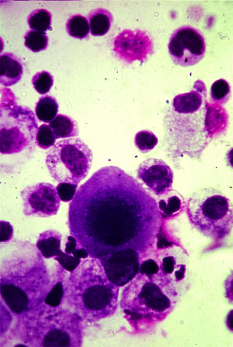Cancer vax progressing
 Research suggests a new cancer vaccine could bypass tumours' defences.
Research suggests a new cancer vaccine could bypass tumours' defences.
A new treatment being developed in the US targets two types of protein that are expressed strongly in various human cancers.
Two major types of immune cells - T cells and natural killer (NK) cells - are normally activated by binding to these stress proteins, yet tumour cells can evade this attack by slicing and shedding them.
The new cancer vaccine can prevent this slicing, thereby increasing the amount of stress protein expression and, consequently, generate a coordinated and general attack on tumour cells by the host's immune system (from T and NK cells), improving on vaccines that target specific cancer proteins which cancers often alter to avoid detection.
This allows the vaccine to thwart the defensive response of tumours to vaccine-induced immune attack.
In recent tests, researchers say they have been able to demonstrate the efficacy and safety of the vaccine in mice and nonhuman primates. The preclinical findings could pave the way for further testing to determine clinical applicability.
The authors conclude that the vaccine is capable of promoting protective immunity against tumours, even those with evasive mutations. Future clinical trials will be needed to evaluate this potential in humans.
More details are accessible here.








 Print
Print